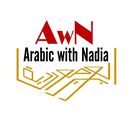|
https://www.amust.com.au/2017/11/living-a-translated-islam-learn-arabic/
Umar Ibn-ul-Khattab (ra) was to become renowned for his unfailing justice and asceticism. The story of his acceptance of Islam is well known to Muslims. A powerful man both in physique and demeanor storms home enraged by the knowledge that his sister and brother-in-law have converted to Islam. Bellowing and thundering, he is stopped cold in his tracks by the power, beauty and excellence of the Qur’an. The verses had such power over him because he comprehended them. He was shaken to his core because he filtered what he perceived through a meshwork of a deep-seated knowledge of the Arabic language and appreciation for its subtleties and cadence. Centuries of love for the Arabic language, have been firmly rooted in the fact that Arabic was the language that Allah chose to communicate his final call to humanity. For instance, Ali Al-Farisi (901-987 CE) a famous grammarian and linguist, when asked to compare Arabic and Persian, replied that Arabic “was far superior to Persian both aesthetically and rationally”. This love for Arabic meant that Arabic was claimed by Muslims of all cultural backgrounds. Arabic became a binder of the ummah, a language of Muslims and not just a language of the Arabs. In fact, many of the renowned Arabic scholars and grammarians were of non-Arab origins. Today, however, it has become commonplace for Muslims to practice deen without having acquired knowledge of the Arabic language or having tried to acquire it. Various societal transformations have normalized this phenomenon and made it acceptable for millions of Muslims to live a translated Islam. What is sadder, however, is that some Muslims value other languages more. It is acceptable for Muslims of certain ethnic backgrounds to send their children to memorize the Qur’an verbatim in Arabic, and then learn all their deen in their local language. Initially used as aids, if at all, these local languages have been elevated among some groups to such a degree that they have supplanted Arabic as a language of deen. It is indeed true that with the multitudes of translations present today, the basic tenets of the faith, such as belief in the oneness of Allah, the truth of the Prophethood of Prophet Muhammad (s), Allah’s commandments and his prohibitions can be articulated in any language and enacted whether one knows Arabic or not. However, enactment of deen, articulation of religious statements, recitation of verses verbatim and connection with deen are very different things. The Qur’an in Arabic is profound, but millions are disconnected from the words of Allah and barred from experiencing the miracle of the Qur’an in Arabic. Lesley Hazelton, an agnostic Jew, took it upon herself to read the Qur’an in Arabic and English and concluded that in English the Qur’an was a mere shadow of itself. Indeed, anyone who knows any language knows that the beauty of its literature cannot be experienced in translation, especially when translations are mediated by translators influenced by their views, backgrounds, experiences and agendas. More importantly Arabic was a language of identity for Muslims. The Islamic civilization did not eradicate local cultural norms provided they did not contradict the teachings of Allah, i.e. Islam did not have a one-culture policy. However, there was never any disagreement among Muslims that Arabic was the language of the ummah. Ibn Taymiyyah (1263 – 1328 CE) considered the learning of Arabic fard because it facilitated comprehension of the Qur’an and the Sunnah. More importantly, Ibn Taymiyyah was many centuries ahead of contemporary scholars when he stated that acquiring a language had an influence on cognition, mannerisms and religiosity. He believed that learning Arabic constituted emulation of the righteous companions and that it would influence how Muslims viewed or perceived the world, thought about it and ultimately experienced Islam. He, therefore, illuminated the deep connections between language, culture, identity and worldview. The question here is, why are millions of Muslims satisfied with living a translated Islam? The bigger question is, are we fast approaching a time in which we will be carrying scrolls that we do not comprehend? Much research is needed to answer these questions and many others about the complexities of the relationship Muslims have with the Arabic language. In the Australian context, my PhD research seeks to understand the experiences of Muslim youth learning Arabic at Australian Islamic schools to shed light on their views of the Arabic language, detail the nature of their learning experiences and identify whether these experiences have an impact on the uptake of Arabic by Australian Muslim youth.
1 Comment
|
Author: NADIAArchives
April 2020
|

 RSS Feed
RSS Feed